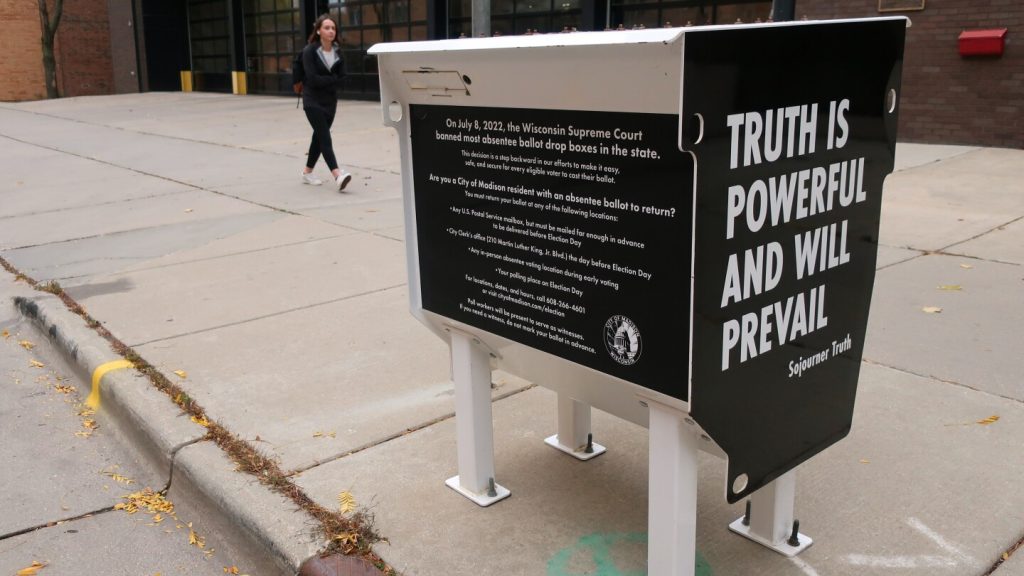Democratic Gov. Tony Evers of Wisconsin is urging the state Supreme Court to overturn a ruling that restricted the use of absentee ballot drop boxes. This ruling, made in 2022, limited drop box locations beyond election clerks’ offices and was influenced by former President Donald Trump’s baseless claims of voter fraud in the 2020 election. The Wisconsin Supreme Court, which was conservative at the time of the ruling, is now controlled by liberal justices and has agreed to revisit the case. Oral arguments are scheduled for May 13, with Evers arguing that Wisconsin law does not explicitly prohibit the use of drop boxes in various community locations.
The use of drop boxes for absentee ballots has been a common practice in Wisconsin, but their popularity surged during the COVID-19 pandemic in 2020. Over 500 drop boxes were set up in more than 430 communities that year, particularly in heavily Democratic cities like Madison and Milwaukee. The debate over drop box locations is significant in Wisconsin due to the state’s status as a battleground for presidential elections. With four of the past six presidential elections being decided by less than a percentage point, the rules surrounding voting methods are closely scrutinized.
Wisconsin is not alone in the use of absentee ballot drop boxes, as at least 29 other states allow for their use in locations outside of election offices. Governor Evers emphasized the safety and security of drop box voting, stating that it is a common practice across the country to ensure that all eligible voters have the opportunity to cast their ballots freely. The argument is based on the interpretation that dropping a ballot into a drop box maintained by the municipal clerk is equivalent to mailing a ballot without personally witnessing its collection by a postal carrier.
The legal battle over drop box locations in Wisconsin reflects broader debates about voting rights and access to the ballot box. The outcome of this case will have implications for future elections in the state, particularly in the context of closely contested presidential races. The legal challenge brought by Priorities USA, a liberal voter mobilization group, and the Wisconsin Alliance for Retired Voters highlights the polarization surrounding election laws and procedures in the state. By revisiting the ruling that restricted drop box locations, the Wisconsin Supreme Court will clarify the legality and accessibility of this voting method in future elections.
As the case moves forward, Governor Evers remains steadfast in his support for absentee ballot drop boxes as a secure and convenient option for voters. The upcoming oral arguments scheduled for May 13 will provide an opportunity for both sides to present their perspectives on the issue and for the court to reconsider its previous ruling. The outcome of this legal battle will have implications not only for Wisconsin but also for other states grappling with similar questions about voting methods and election procedures. The debate over drop box locations is a key component of the broader conversation about democracy and electoral integrity in the United States.


